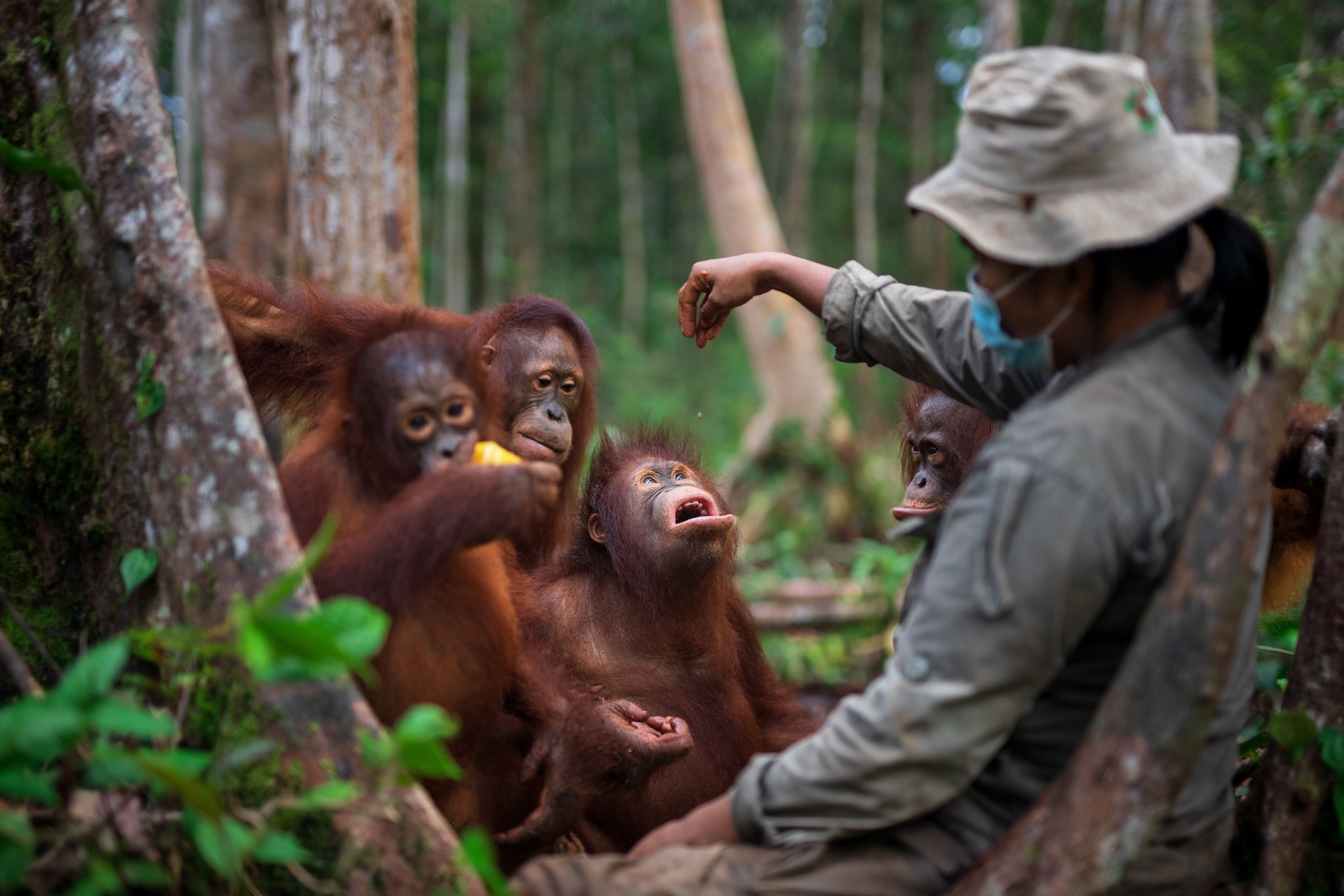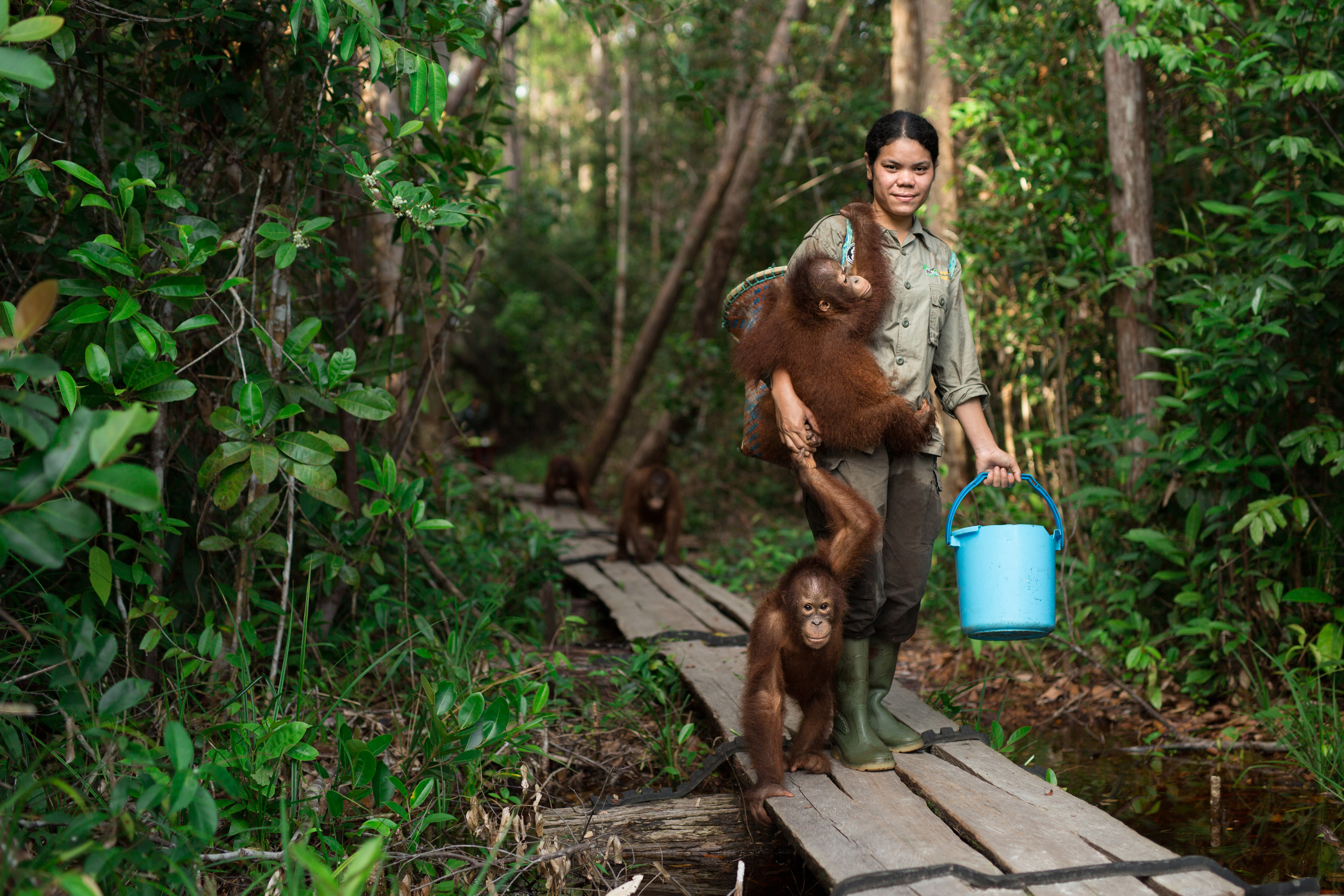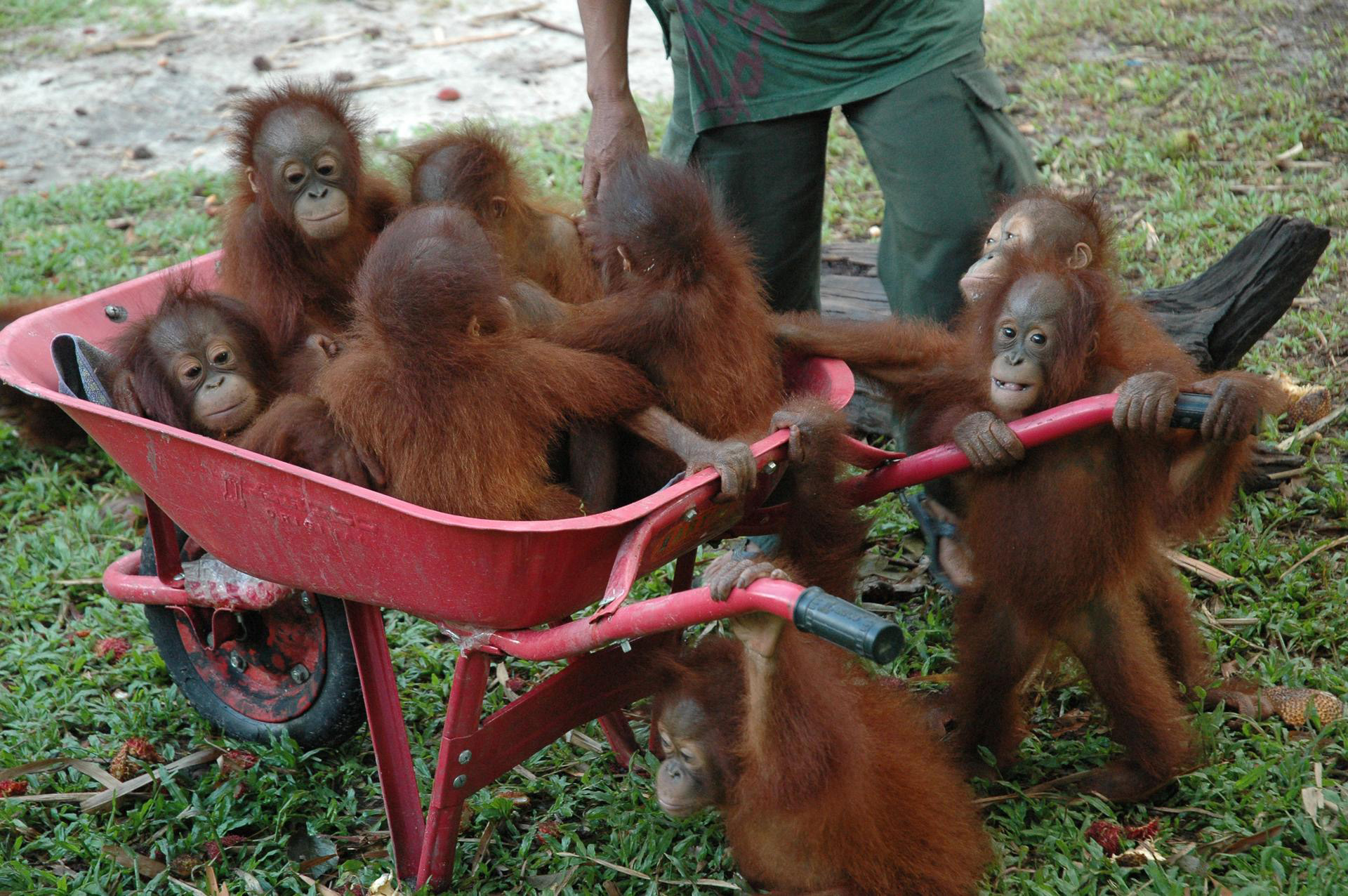The Borneo Orangutan Survival (BOS) Foundation and King Living

There are certain trees in the forests of Borneo that only survive through orangutans dispersing their seeds. Orangutans are a keystone species that help other species within those jungles to survive as well. And with only about 57,000 Bornean orangutans remaining in the wild, the work of the Borneo Orangutan Survival (BOS) Foundation is critically important.
The BOS Foundation is the world’s largest orangutan and sun bear conservation organisation. They work to protect and conserve these animals and their habitats, while also educating local communities to ensure a viable future.
Kerin Welford, CEO and President of BOS Australia, shares her insights into the organisation’s mission and the important work they do.

A holistic approach to conservation
Established in 2001, BOS Australia is part of a global network dedicated to saving orangutans from extinction. The BOS Foundation rescues, rehabilitates and, whenever possible, releases these orangutans back into protected forests. These areas are safe from human encroachment, poaching and farming, ensuring the long-term survival of the species.
“We focus on conserving and restoring vital habitat for orangutans, as habitat loss through deforestation and the illegal wildlife trade pose the greatest threats to their survival,” explains Kerin.
In total, the BOS Foundation has released 533 orangutans back into the wild and now cares for 360 orangutans and 75 sun bears. They have also secured more than 465,000 hectares of rainforest in Central and East Kalimantan, Borneo.
“We really work hard to get local communities on side and understand the impacts and threats orangutans and sun bears face,” emphasises Kerin. “Our work not only focuses on the animals but also on the broader ecosystem.”
Long standing partners
Environmental and animal rescue is one of the three focus areas of the King Living Foundation and the BOS Foundation is one of the organisations we support.
The partnership dates back to 2015 and has resulted in significant contributions to infrastructure projects within Samboja Lestari Sanctuary. These projects include a food truck for the sun bears, building enclosures and supporting the release of rehabilitated animals.
“The support of the King Living Foundation has been transformational,” adds Kerin. “It has allowed us to significantly contribute to infrastructure projects and other programs that are sorely needed in Borneo.”
Fleur’s new enclosure
One of the beneficiaries of King Living Foundation’s support is sun bear Fleur. Sun bears are the smallest bear species with tongues that can reach up to nearly 25 centimetres, helping them to find honey and insects in hard-to-reach places. Sun bear populations have declined over 30% in the last 30 years, with only 10,000 now left in the wild.
“Fleur has a history of hostility and aggression towards other sun bears,” explains Kerin.
When Fleur arrived at the Samboja Lestari Rehabilitation Centre in 2018, the technicians attempted to socialise her with two different sun bears. Unfortunately, neither of these attempts was successful and the decision was made to separate Fleur.
“Due to this, Fleur was placed in the training facility as it only houses one bear at a time,” says Kerin. “Thanks to King Living, we’ve now been able to provide her with her own space. She can live happily, safely and comfortably by herself without the need to compete with other bears. She even has a neighbour, Bernard, who she can see but not reach. They are content and amicable neighbours, and nothing more.”
This is not unlike how Fleur would live in the wild, where sun bears enjoy solitary lives. Despite her reputation for being the most aggressive of the bears, Kerin assures that “she is always eager to explore and makes the most of her environment and the enrichment opportunities available to her.”
Orangutan Jungle School
The BOS Foundation’s work extends to rescuing and rehabilitating orangutans displaced by habitat loss, forest fires, poaching and the illegal pet trade. In the more than 30 years since their founding in 1991, BOS Foundation have helped to better the lives of over 1,000 orangutans through rescue, rehabilitation, release, translocation, and long-term care.
The organisation operates two key sanctuaries, including Nyaru Menteng, which is on government-owned land that has been reclaimed. At a new location nearby, Nyaru Menteng 2, the BOS Foundation will continue their critical work, including an enhanced Orangutan Jungle School.
“The Orangutan Jungle School, supported by the King Living Foundation, caters to the infant and juvenile orangutans, mostly orphans,” says Kerin. “Human surrogate mothers teach the orangutans the skills they need for their eventual release into their rainforest home where they belong.”
The infrastructure at Nyaru Menteng 2 will include facilities such as boardwalks for safe access, buildings for caregivers, feeding platforms and a secure sleeping area for the young orangutans. Here, the orangutans learn everything from locating and opening all the varied foods the jungle offers, avoiding predators, to building secure nests to sleep.
“This is much more than a school,” advocates Kerin. “It’s a safe place where our orphaned babies can recover from their traumas, play and thrive. They have endured so much in their young lives and our jungle school is crucial for their rehabilitation journey. Without it, they wouldn't survive in their natural habitat and could never live a free life.”
Learn more about BOS Foundation or discover the conservation work the King Living Foundation supports:



















